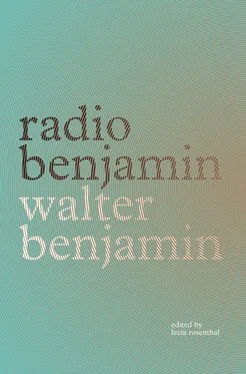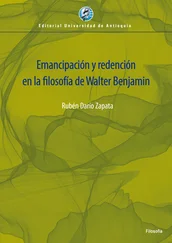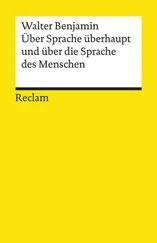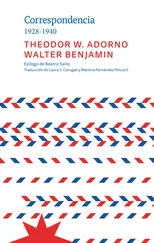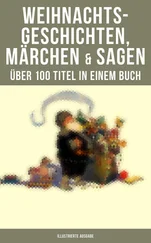G. C. Lichtenberg. 15
LABU: Unfortunately, gentlemen, we are forced to recognize once again what lamentable afflictions are caused on Planet Earth by the existence of death, which is so interesting in itself, and which, as you are well aware, is unknown to us here. I believe I act in accordance with your wishes if we let music accompany the soul of the deceased little flower girl on its path into space.
A very short snatch of music follows.
LABU: To my regret, I must announce that the Spectrophone has meanwhile shifted so far that it will take us all a great deal of effort to bring Herr Lichtenberg back into focus.
A series of purring and ringing signals are heard.
QUIKKO: Indeed, there has been a shift of a millionth of a milli-degree. We are no longer in Göttingen. According to my measuring instruments, it must be Einbeck, which is not far away. — Silence!
LICHTENBERG: Herr Professor, I think—
QUIKKO: Silence! Listen to Lichtenberg’s voice. It comes from Einbeck.
LICHTENBERG: Herr Professor, we should retreat to the tavern; the noise threatens to become too distracting here.
PüTTER: Here comes the whole crowd marching behind the town crier. 16
TOWN CRIER: The citizenry of the town of Einbeck, on the orders of the laudable municipal authorities of this town, are hereby informed that the infamous, unworthy, and learned apprentice of murder Heinrich Julius Rütgerodt will be sent from life to death today, the 30th of June, this afternoon at three o’clock, on the hill outside our town. The same Heinrich Julius Rütgerodt 17was a respected citizen of our town of Einbeck, who enjoyed, in addition to his food, 1,500 thaler in income. But he killed his mother because she, so he said, ate too much. He invented a machine, which, according to the opinion of exceptional professors and university technologists, is of the greatest credit to the human intellect. He placed a certain number of boards together in a barn in such a way that, as soon as his mother stepped foot on one of them, she set them all into motion, causing them to collapse on her head. He achieved his goal without a single nail and without any other injury being necessary. He beat his wife to death because one morning she didn’t make his coffee the right way. He could name no other motive at the trial. He struck his maid dead in the cellar, because he no longer wanted to feed her small child. All the professors and justices agree, however, that despite his inclination toward the greatest inhumanity, there must have been hours when his conscience tortured him. For he never could tolerate daylight; instead he sat the entire day with his shutters closed. And, incidentally, it has been certified that his senses were healthy and his mind whole, indeed he was among the most acute of men. This monster in human form will now publicly be sent from life to death, on which account his offenses will once more be held up to him and his confession taken in front of the assembled people.
PüTTER: I do reproach myself, dear Herr Lichtenberg, for encouraging you to join me on an excursion during which your ears must be assaulted by such a vulgar outcry.
LICHTENBERG: I would have asked the innkeeper to close the windows if I didn’t note in myself a certain interest in criminal cases such as these, Justice.
PüTTER: Say what you like, but I know that it’s only because of your friendship with me that you consented to join me in such a dubious adventure as this execution, such as executions are.
LICHTENBERG: I trust we won’t be witnesses of it. At least as far as concerns myself, I must…
PüTTER: Whatever are you thinking of? For me, it’s simply a matter of getting my hands on the files directly after the delinquent has been put to death.
LICHTENBERG: Don’t tell me you are working on a Pitaval 18of our kingdom of Hanover.
PüTTER: I cannot deny it, dear Professor.
LICHTENBERG: Well, then perhaps you will allow me to tell you about a short play I saw years ago at a London marionette theater.
There are loud voices outside.
PüTTER: Just allow me to close the window. The noise is beginning to get too loud after all.
LICHTENBERG: Well, there was a puppeteer who had set up his tent in the open near Covent Garden. For a few pence, one could sit there for hours. There is one piece among those in his repertoire which I have never forgotten. It was, as I said, a puppet theater. But whereas usually the puppets in such a theater represent people, in this one they truly only represented what they were: marionettes. Five, six, seven of these marionettes were dialogue1 in front of a curtain: a merchant, a soldier, a clergyman, a housewife, a judge. They swayed back and forth in the breeze and conversed. What about? You’ll never guess: it was about freedom of the will. It was a peaceful conversation, because there was really only one opinion among them all: reason, nature, and religion combined their weight in favor of free will. Only one puppet, which hung somewhat to the side — I think I forgot to mention it before — was not so resolute. I think this puppet was a philosopher, or maybe a professor of physics. But the others didn’t set great store by his opinion. All at once, a broad cardboard hand appeared from above. — This was supposed to represent a human hand. — It took away one puppet after the other. It was very clear. The marionette player was taking his puppets off their rack. As one after the other floated up into the heights, the ones that were left asked why they went away. And each one had some sort of excuse. But the hand of the puppeteer was never mentioned. And finally the philosopher or professor of physics was left alone on the empty stage.
PüTTER: I’m not sure what you’re trying to say, dear colleague.
LICHTENBERG: I don’t mean to say anything; at best I want to ask something. Whether, when we break a murderer on the wheel, we don’t make the same mistake as the child who hits the stool he bumps against. 19
A PEDDLER: Excuse me, gentlemen, for bothering you. If I could ask the gentlemen to glance at my collection. The best assortment of silhouettes you can find anywhere. One for a silver coin. The king of Hanover, the king of Prussia, the gentlemen Danton and Robespierre, of whom so much is said, and Herr von Goethe, Assistant Legal Secretary of Weimar and author of Werther, Herr Bürger of neighboring Göttingen, the great world traveler Herr Forster, the gentlemen Iffland and Kopf, the pride of the Berlin theater, Mademoiselle Schröder of Weimar, — I can’t count them all for you. No interest! ( Pause. ) Well, then the gentlemen will certainly not spurn a little memento of the day. I present to you the finely cut silhouette of our local monster. Please take a look at the text by Herr Lavater on the back.
PüTTER ( reading ): An inveterate murderer, full of quiet evil burrowing in on itself, an assassin of women, a mother-killer, a miser such as no moralist could ever have thought up, no actor portrayed, no poet written about. He reveled in nocturnal gloom, turned midday to midnight by closing his shutters, locked his house, averse to light, averse to people, he buried his stolen treasures in the earth, deep within cellar walls, under floors and in fields. Spattered with the blood of innocence, he danced, laughing, on the wedding day of the woman whom later he struck dead at the grave she had herself unknowingly prepared at his behest and in his presence. All this can be read in his likeness: his eyes look at nothing, his smile is like the open grave, and his fearsome teeth are the gates to Hell. 20
PüTTER: This leaflet is worth a silver coin to me.
LICHTENBERG: And to me it’s even worth two, because there’s a story behind it.
PüTTER: What do you mean?
Читать дальше
